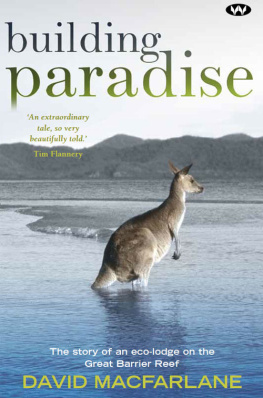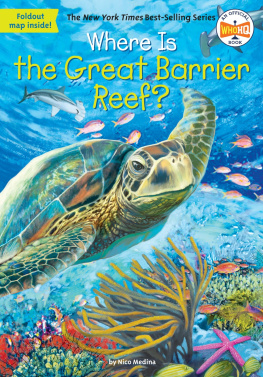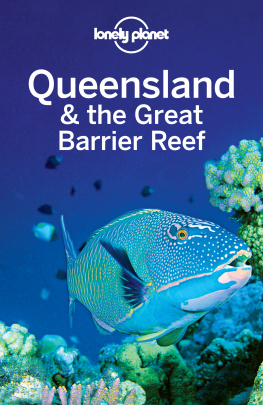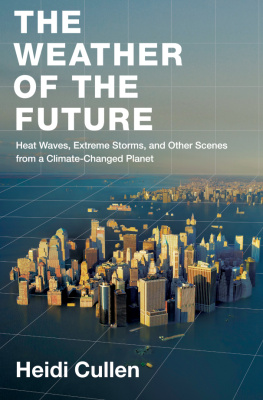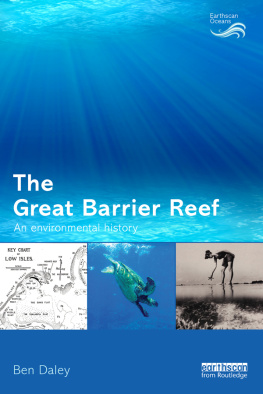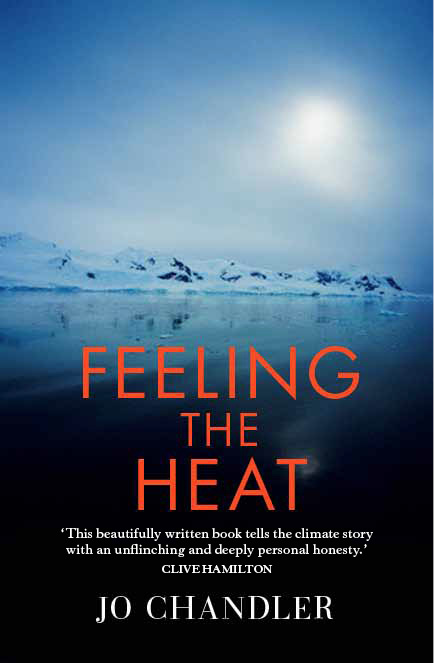We are now faced with the fact, my friends, that tomorrow is today. We are confronted with the fierce urgency of now. In this unfolding conundrum of life and history there is such a thing as being too late. Procrastination is still the thief of time We may cry out desperately for time to pause in her passage, but time is adamant to every plea and rushes on. Over the bleached bones and jumbled residue of numerous civilizations are written the pathetic words: Too late.
Never doubt that a small group of thoughtful, committed citizens can change the world. Indeed, it is the only thing that ever has.
Prologue
In every grain of sand there is a story of the earth.
Rachel Carson, writer and biologist
The whole of science, and one is tempted to think the whole of the life of any thinking man, is trying to come to terms with the relationship between yourself and the natural world. Why are you here, and how do you fit in, and whats it all about?
David Attenborough, BBC naturalist
D eep in picket-fence suburbia on a cool summers evening, the gathering warms up nicely courtesy of circulating canaps and Christmas drinks.
The chatter swings easily between friends and strangers gathered in the backyard, propelled by the breezier preoccupations of the middle aged and middle class, all people lucky enough to inhabit a peaceful nation and a functioning economy. Theres the kids (their study scores/sporting achievements/outrageous phone bills); banter about who did what for their fiftieth birthday (I resolve, words ringing with the hollow smugness of the forty-something, to get younger mates); cholesterol levels and personal trainers; anecdotes from the last vacation or plans for the next; how the cricket is shaping up, whos off to the tennis, the devotions of football faithful already enraptured by the prospect of next season. Politics are out of bounds. Were all keeping it nice.
Of course there are deeper undercurrents. Murky fears for fragile teenagers and frail parents. Marriages drifting the coursestagnant, turbulent, tranquil, flowing. The eddies of diminishing expectation. Financial anxieties and health scares. Me, Im fretting about drought and sea levels, monsoons, methane and the mysterious mechanics of the deep ocean.
Im a seasoned worrier, but not usually a catastrophist. Indeed I classify myself as an optimistic worrierinvest a little anxiety, a little attention, and surely it will all turn out for the good. Ive fretted about the looming spectre of climate change on and off for years but was always reassured by the modicum of comfort that it was something gradual, even stoppable, and Smart People would fix it before things got really diabolical. Now the wind has changed. We are on the precipice of climate system tipping points beyond which there is no redemption, James Hansen, director of the NASA Goddard Institute of Space Studies and the grandfather of modern climate science, warned back in 2005. Today the most sober and serious of scientists seem increasingly preoccupied with these tipping pointssinister, swift, unpredictable and inescapable, plunging the planet into something unrecognisable. So many graphs, all tracking emphatically in the wrong direction. So little being done to haul them back. I look around the party and waver between reassurance and despair that no-one else seems to hear the rumble, louder and louder. But this is not the time or place to speak of such things. Tis the season.
Im as content as anyone, just for a little while this night, to wallow in the shallows. Its been an intense, dislocating few months, travelling as a reporter into the periphery of a war in Afghanistan and deep into the impoverished social quagmire that is Papua New Guinea. Worry about the future seems an indulgence when bleak images of the here and now are so raw. Such expeditions shatter illusions that there is justice or order in the human realm. Ghosts shadow me home; its impossible to reconcile these realities and yet they are diabolically entwined. The discomforted, cowardly first-world conscience craves solace and finds it in what is not hereragged children, wretched wives, angry wounds; guns and grief, bunkers and barbed wire, sirens and stench.
And so Im holding tight to good fortune and random blessingssafety, plenty, my bloke and the glass of wine my host is eagerly refilling. Were in the embrace of a grand old gum tree, dizzyingly tall, its broad limbs spanning the paling boundaries, stretching from the eaves clear over the spa to the barbecue. Remnant nature, it inspires contemplationof its beauty and its endurance.
How has it thrived and survived as the landscape around it was tamed, titled, fenced and occupied? Surely the creatures which once visited it have fled encroaching suburbia, vanished and been replaced by waves of new populations, just like the human generations it has shaded? Its roots have evaded easements and foundations, plumbing and extensions, the ever-expanding infrastructure of modern, urban life. Theyve found nourishment despite the diversion of the natural water flow and a marathon of parched summers. The tree has held tight to the essentials, adapted, survived. Just to look at it is to feel betterreassured by natures resilience, a bit healed.
But did it manage to survive in spite of all human efforts, I wonder, or because of them? Is this a small victory of nature alone, or has someone maybe cared for this tree, safeguarded its needs, afforded it due respect? Loved it a little, and found their suburban soul nurtured in return?
So youre off to Antarcticaagain? Im returned to my body. The trip is remarkable as the most elusive of destinations; cash cant buy a tourist ticket to the remote ice stations where Im going for the next few weeks. They are open only to a tight coterie of scientists, specialist trades and my categorywriters and journalistsa lucky few ushered in to broadcast words and images of the last, vast wilderness to the populated world. A mere 5000 people occupy the continent through the long, three-month day of the peak summer science season. I have the curious attention of the circle. What will you be doing there?
Its a big question. I try, given the occasion, for a short answer. Its part of a pilgrimage, I explain, traversing the frontiers of the climate story. To the hot and the cold, the wet and the dry, from the barren desert of the ice to the lush tropics, to the rainforests and the frenzied, riotous life of the coral reefs. These environments are undergoing changesome seismic, some subtle, frequently confounding, all deeply worryingaccording to the observations of the scientists who know them intimately.
My plan is to explore these latitudes of extremity and the communities which exist there. To live among people who are, in the words of American writer Barry Lopez, taking the measure of the planet. Those venturing deeply, uncomfortably into the field to try to decipher climates past and fathom our future from the raw materials of the elementsoxygen, hydrogen, carbonand their expressions in air, ice and water. Those who follow the evolving narrative of the living world through creatures as tiny as a single cell or as big as a whale. They are the great explorers of our era, detectives in the defining mystery of our age. I want to tell their stories, to see what they see.
I could go on. And on. About the thrill of being right there when a scientific team captures the prizethe morsel of data necessary to build and strengthen the graphs explaining what is changing in our world. As they study, scrutinise, argue and question. As they count whales from aircraft sweeping low over the fractured, icy ocean; or scramble on their hands and knees in bitter, blizzard winds to bore holes deep into the ice, searching for the buried treasure of climate history. As they float in warm waters over sunken gardens of fading coral or push their way through grasping tropical jungle walls. As they trawl for vials of water, teeming with invisible life, from the deepest reaches of the ocean; and launch balloons to catch the breath of the planet high above the South Pole.








